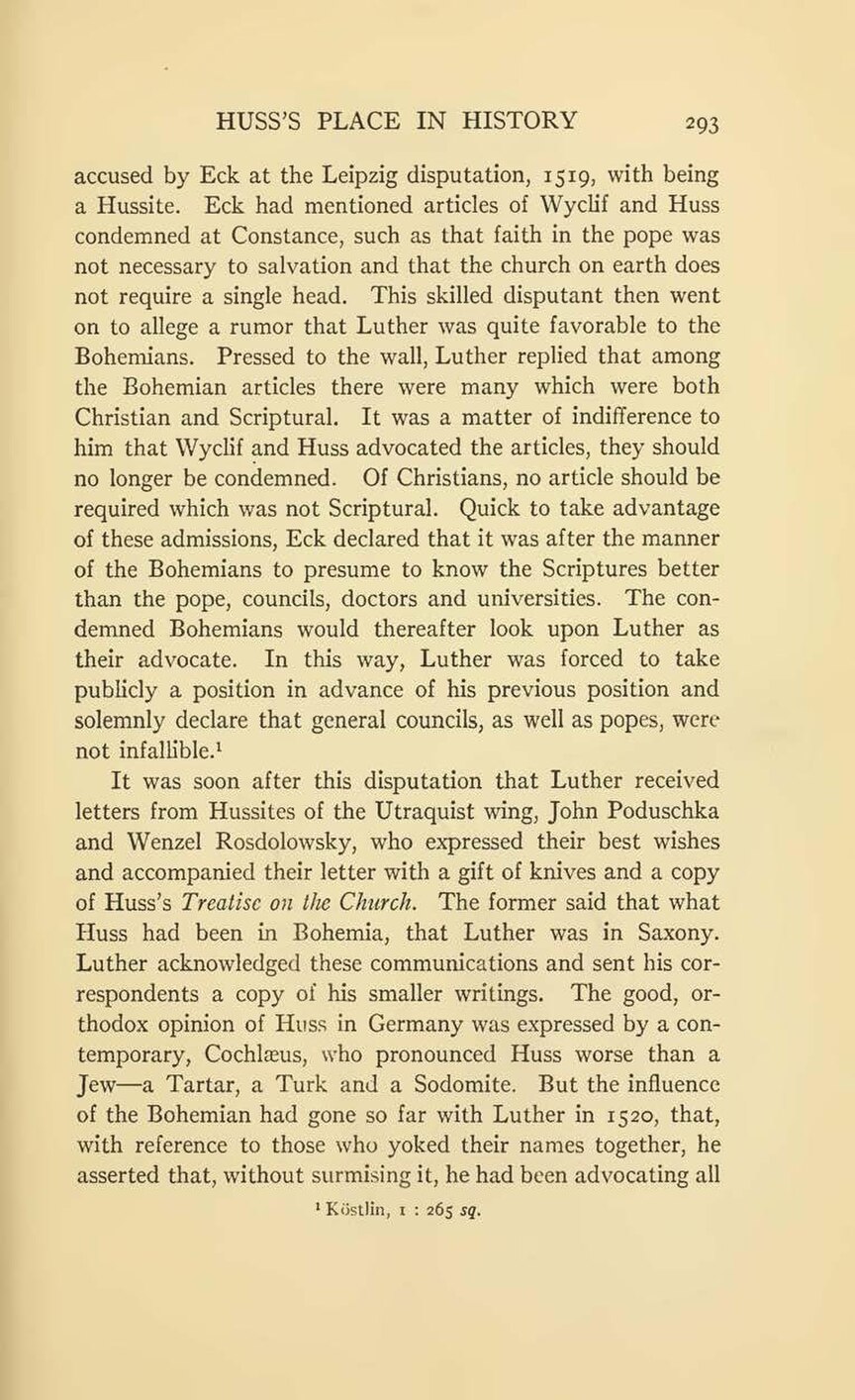accused by Eck at the Leipzig disputation, 1519, with being a Hussite. Eck had mentioned articles of Wyclif and Huss condemned at Constance, such as that faith in the pope was not necessary to salvation and that the church on earth does not require a single head. This skilled disputant then went on to allege a rumor that Luther was quite favorable to the Bohemians. Pressed to the wall, Luther replied that among the Bohemian articles there were many which were both Christian and Scriptural. It was a matter of indifference to him that Wyclif and Huss advocated the articles, they should no longer be condemned. Of Christians, no article should be required which was not Scriptural. Quick to take advantage of these admissions, Eck declared that it was after the manner of the Bohemians to presume to know the Scriptures better than the pope, councils, doctors and universities. The condemned Bohemians would thereafter look upon Luther as their advocate. In this way, Luther was forced to take publicly a position in advance of his previous position and solemnly declare that general councils, as well as popes, were not infallible.[1]
It was soon after this disputation that Luther received letters from Hussites of the Utraquist wing. John Poduschka and Wenzel Rosdolowsky, who expressed their best wishes and accompanied their letter with a gift of knives and a copy of Huss’s Treatise on the Church. The former said that what Huss had been in Bohemia, that Luther was in Saxony. Luther acknowledged these communications and sent his correspondents a copy of his smaller writings. The good, orthodox opinion of Huss in Germany was expressed by a contemporary, Cochlæus, who pronounced Huss worse than a Jew—a Tartar, a Turk and a Sodomite. But the influence of the Bohemian had gone so far with Luther in 1520, that, with reference to those who yoked their names together, he asserted that, without surmising it, he had been advocating all
- ↑ Köstlin, 1: 265 sq.
